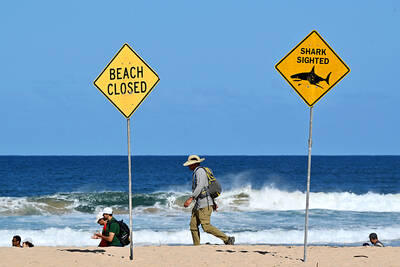Venezuelan opposition leader Henrique Capriles easily won a primary election on Sunday to become the unity candidate against Venezuelan President Hugo Chavez, vowing to end 13 years of socialist rule that he said has left the OPEC nation in crisis.
Capriles’ candidacy had a firm start as unexpectedly high participation of nearly 3 million people in the primary vote signaled the opposition can mobilize supporters ahead of the Oct. 7 presidential election.
The 39-year-old, center-left state governor’s bid was further bolstered by a show of unity among other candidates from the opposition, which for years suffered from internal disputes that ultimately benefited Chavez.
Chavez RIDING HIGH
Yet with Chavez riding high in polls, still popular among the poor and spending massively on welfare projects, Capriles will need to go beyond the vague promises and feel-good factor of his primary campaign if he is to unseat the president.
“This is about the unity of all Venezuelans that want progress,” Capriles told thousands of cheering supporters gathered outside his campaign headquarters on Sunday night. “We have a country in crisis and a government dedicated only to partisan politics.”
His strong showing, winning 62 percent of the primary vote, will likely lift Venezuelan bonds, which react well to any news suggesting a change from Chavez’s state-centered economic model.
Capriles says he will maintain the best of Chavez’s welfare policies, while only gradually dismantling controversial measures that include price and currency controls plus nationalizations of everything from farms to oil service companies.
Hard sell
However, it will be a hard sell to convince voters in Venezuela’s rural backwaters and urban slums won over by Chavez’s potent combination of fierce nationalism, abundant charisma and huge welfare programs.
State media immediately began describing Capriles as a “right-wing” candidate, with one prominent late-night commentator questioning the opposition’s figure of 2.9 million participants.
Heavy on generalizations and in a hoarse voice, Capriles’ acceptance speech showed his public style is still far behind the smoothly loquacious Chavez, who recently spoke for a record-breaking nine-and-a-half hours in a speech to Congress.
“The guy may have won the primaries, but he’s so lacking in charisma, it’s not going to be easy for him,” Venezuelan Deputy Minister of Foreign Affairs Temir Porras said via Twitter.

With much pomp and circumstance, Cairo is today to inaugurate the long-awaited Grand Egyptian Museum (GEM), widely presented as the crowning jewel on authorities’ efforts to overhaul the country’s vital tourism industry. With a panoramic view of the Giza pyramids plateau, the museum houses thousands of artifacts spanning more than 5,000 years of Egyptian antiquity at a whopping cost of more than US$1 billion. More than two decades in the making, the ultra-modern museum anticipates 5 million visitors annually, with never-before-seen relics on display. In the run-up to the grand opening, Egyptian media and official statements have hailed the “historic moment,” describing the

SECRETIVE SECT: Tetsuya Yamagami was said to have held a grudge against the Unification Church for bankrupting his family after his mother donated about ¥100m The gunman accused of killing former Japanese prime minister Shinzo Abe yesterday pleaded guilty, three years after the assassination in broad daylight shocked the world. The slaying forced a reckoning in a nation with little experience of gun violence, and ignited scrutiny of alleged ties between prominent conservative lawmakers and a secretive sect, the Unification Church. “Everything is true,” Tetsuya Yamagami said at a court in the western city of Nara, admitting to murdering the nation’s longest-serving leader in July 2022. The 45-year-old was led into the room by four security officials. When the judge asked him to state his name, Yamagami, who

DEADLY PREDATORS: In New South Wales, smart drumlines — anchored buoys with baited hooks — send an alert when a shark bites, allowing the sharks to be tagged High above Sydney’s beaches, drones seek one of the world’s deadliest predators, scanning for the flick of a tail, the swish of a fin or a shadow slipping through the swell. Australia’s oceans are teeming with sharks, with great whites topping the list of species that might fatally chomp a human. Undeterred, Australians flock to the sea in huge numbers — with a survey last year showing that nearly two-thirds of the population made a total of 650 million coastal visits in a single year. Many beach lovers accept the risks. When a shark killed surfer Mercury Psillakis off a northern Sydney beach last

‘CHILD PORNOGRAPHY’: The doll on Shein’s Web site measure about 80cm in height, and it was holding a teddy bear in a photo published by a daily newspaper France’s anti-fraud unit on Saturday said it had reported Asian e-commerce giant Shein (希音) for selling what it described as “sex dolls with a childlike appearance.” The French Directorate General for Competition, Consumer Affairs and Fraud Control (DGCCRF) said in a statement that the “description and categorization” of the items on Shein’s Web site “make it difficult to doubt the child pornography nature of the content.” Shortly after the statement, Shein announced that the dolls in question had been withdrawn from its platform and that it had launched an internal inquiry. On its Web site, Le Parisien daily published a